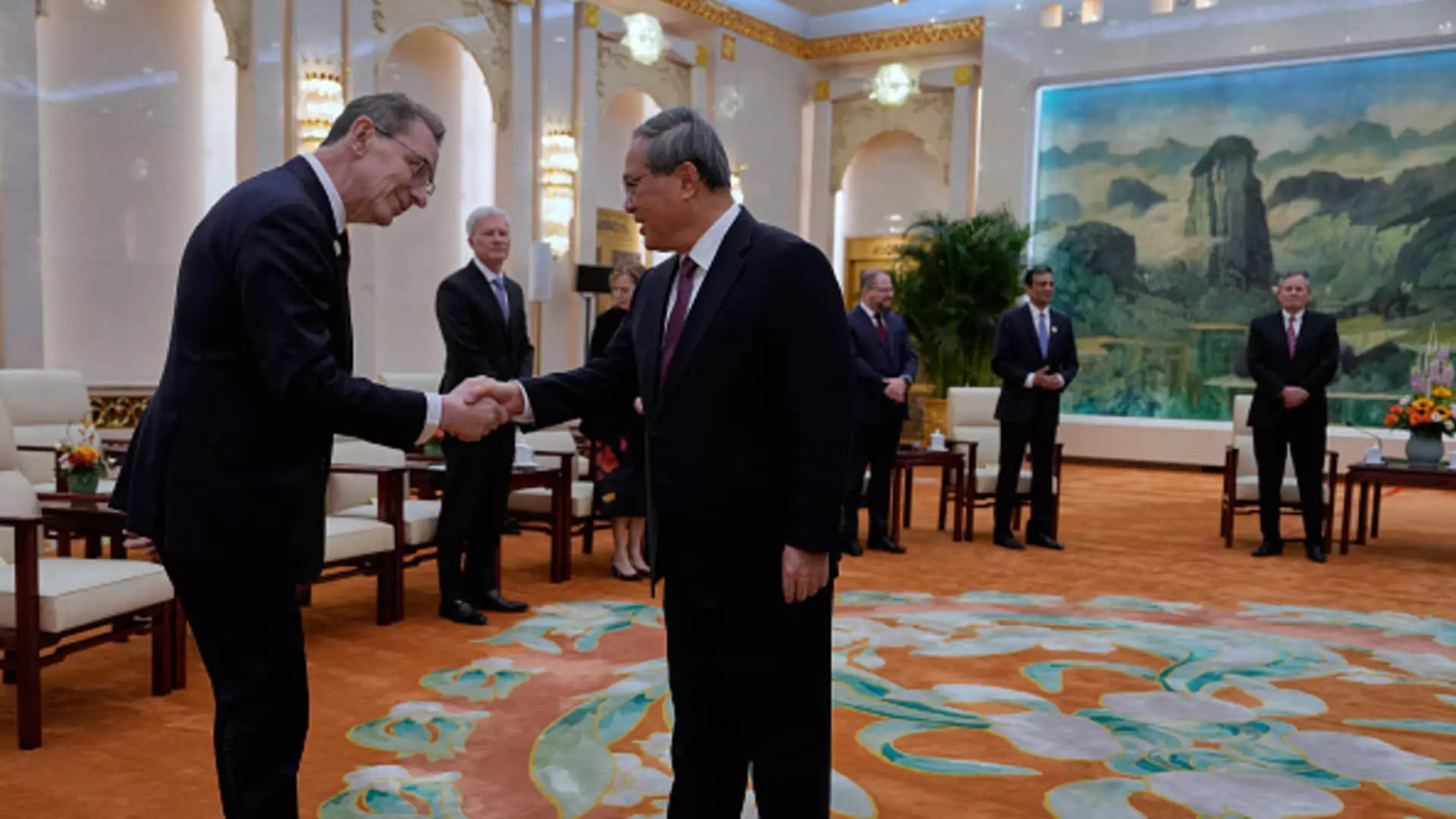In a striking development, U.S. Republican Senator Steve Daines made waves with his recent trip to China, which marked a significant moment since the Trump administration took office. As part of a delegation accompanied by notable CEOs from major American corporations, Daines strategically positioned himself as a bridge between two world powers that have long been locked in a complex adversarial relationship. The visit underscores a growing need for dialogue in the face of mounting economic pressures — yet it raises pressing questions about the efficacy and the intentions behind such discussions amidst lingering tensions.
The backdrop to Daines’ visit is steeped in years of trade disputes between the U.S. and China, which have often been characterized by a series of tariffs and retaliatory measures. Daines himself has an extensive history negotiating these issues, particularly during Trump’s administration. As we stand at this critical juncture, one might wonder if such trips are virtuous endeavors aimed at fostering goodwill, or if they merely serve as a façade for continued economic antagonism.
Understanding the Corporate Alliance
The presence of heavyweight business leaders such as the CEOs from Qualcomm, Pfizer, and Boeing indicates that the corporate sector remains keenly interested in maintaining robust ties with China. Each of these companies brings decades of operational history within the Chinese market. The message Daines conveyed during his discussions was hardly subtle; it was both a testament to the potential rewards of engagement and a reminder that the capitalist machinery thrives on stability. However, one must consider the poignant irony here: these same companies benefit from the very environment that many American politicians continue to vilify.
Is the business community setting aside moral considerations in favor of profit? It would be naïve to dismiss such concerns. The desires to expand markets and pursue innovation often overshadow ethical implications, particularly in contexts where human rights issues and government repression are at play. Daines’ insistence on the success stories of these American corporations in China evokes a kind of nostalgia, but it begs the question—at what cost?
Trade Talks: A Dialogue of Deceit?
During Daines’ meeting with Chinese Premier Li Qiang, the latter’s plea for a return to dialogue over confrontation sounded noble enough on the surface. Yet, it is crucial to recognize that such calls for diplomacy may often serve as political theater rather than legitimate attempts at resolution. The dialogue Daines espoused represents a calculated pivot—one that seeks to stave off further tariff pressures while cloaking itself in the language of cooperation.
Li’s claims of seeking a win-win scenario smacks of an age-old tactic often used by authoritarian regimes: to present a facade of openness while maneuvering in the shadows. The dependability of these promises is hugely questionable, given the structural issues in U.S.-China relations. With an imminent review of “phase one” trade deal commitments set to conclude, the question lingers—are we genuinely moving toward more harmonious relations, or merely witnessing a strategic pause before the next round of economic warfare?
A Dangerous Game of Fentanyl and Trade
One dimension of this complex relationship that cannot be overlooked is the contentious topic of fentanyl trafficking. Daines’ emphasis on the need for China to curb the flow of fentanyl precursors reflects an ongoing crisis impacting American society. This issue serves as a stark reminder that trade ties are not merely transactional but also deeply interwoven with societal well-being.
Nevertheless, the mere act of expressing hope for high-level talks presents a simplistic solution to what is undeniably a multifaceted crisis. While discussions can pave the way for understanding, they cannot substitute for real action, particularly when lives are at stake. The tragic narrative surrounding opioid addiction and the role of fentanyl introduces a moral imperative that should be front and center in these discussions, yet it often takes a backseat to broader economic ambitions.
Is Dialogue Enough? A Call for Accountability
As Daines’ visit wraps up, one cannot help but wonder whether these diplomatic overtures will yield lasting change or merely perpetuate a cycle of superficial dialogue devoid of accountability. The language of cooperation, while beautiful and necessary, often glosses over the harsh realities faced by countless individuals affected by the very policies being discussed. True international relations require more than just conversation—they necessitate sincere commitments to transparency, accountability, and fairness.
In a world increasingly defined by global interdependence, it is incumbent upon leaders from both sides not only to engage in dialogue but to ensure that these conversations translate into genuine progress. Otherwise, we run the risk of reinforcing a status quo that places short-term economic interests above long-term societal welfare. As the curtain falls on this chapter of U.S.-China relations, the call for meaningful change resonates louder than ever.

